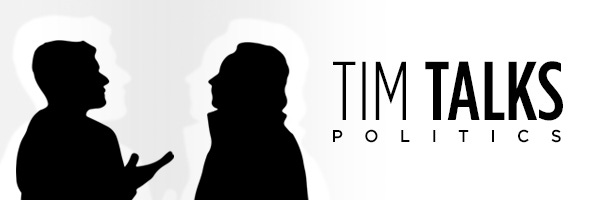June 10: Election shenanigans (no conspiracy, seriously)
In which, primaries and corruption stalk midterms, the knock on effects of the Ukraine war start to bite, and President Biden keeps resorting to flexing emergency powers to “protect democracy.”
It was a very active week in the news, which makes me hesitant to do this, but quick announcement: There will be no Weekly Brief gracing your inboxes next week (June 17) due to my being out of the office. Given the amount of things happening this month and anticipating surrounding a big month at the Supreme Court it’s hard to do that. But I look forward to getting back to things in a couple of weeks. Until then, onward!
Election shenanigans (no conspiracy, seriously)
This past Tuesday (June 7) saw another round of primaries, and another round of surprises, ahead of the 2022 midterm elections. The established narratives right now are mixed results for Trump allies in the GOP primaries, and the worsening picture for Democrats for a host of factors.
The surprise, though, on Tuesday was California. The deeply blue state has been effectively controlled by the Democratic Party for over a decade with every change to election laws redounding to the advantage of said Democratic Party. However, on Tuesday, two major elections signaled an upper limit to how far Californians are willing to go with such an arrangement. San Francisco recalled its radically progressive District Attorney by a very wide margin while the LA mayoral race set up a former Republican against current Representative Karen Bass. The catch on that latter race, is that Rick Caruso led the whole field and was ahead of Bass by a comfortable margin.
The results do not indicate a red wave in California at the moment, but they certainly don’t indicate an improving picture for Democrats.
To make matters worse, a former Democratic Congressman from Pennsylvania pled guilty to election fraud in the 2014-2018 elections, and an internal study by Meta/Facebook demonstrated that the notorious “Zuckbucks”, Facebook political donations, was decidedly weighted in the favor of Democrats.
So, concerning elections in California, real election fraud conviction, and yet another indicator of the less than neutral stance of a major tech/media company. Not a good week for the image or message of a Democratic Party already weighed down by Presidential missteps.
The emergency rule President
President Biden’s most recent missteps this week, at least domestically, came on two different fronts: Fuel prices and energy production.
Having already invoked the controversial Defense Production Act in May to help alleviate the baby formula shortage (which doesn’t appear to be really going well), Biden invoked the DPA again this week to speed development of alternative/green energy sources.
In other words, the Biden administration is foot dragging on developing new oil and gas reserves while using emergency police powers to force America’s energy producers to shift their production in a particular direction. Why does he have to invoke the police powers of the state? Because the economic incentives and/or technology to scale effectively are not yet there for most alternative energy sources (or they’re regulated beyond the pale like nuclear energy).
The market response to such blunt government intervention? The price of gas continues to smash records, forcing Biden to again dip into the strategic reserve (which didn’t work the last two times).
My thought bubble: I’m largely in agreement with the editors over at National Review who see Biden’s regular invocation of the DPA as an abuse of presidential power. It essentially adds up to a Presidency whose definition of “getting things done” rests upon the invocation of emergency powers rather than deliberation and deal making (the normal processes of democracy). There are a couple problems with this approach. One, they rarely work (see the price of gas). Two, and rather paradoxically, they incentivize the maintenance of a state of emergency under the false belief that that’s how anything will get done.
Ukraine and second (and third) order effects
With the fighting in the Donbas region of Ukraine intensifying around major cities, the Ukrainian war is entering a critical stage in the military domain of the conflict.
More broadly, the conflict is hitting a critical stage globally as the second and third order effects of the war begin to kick in. The most notable of these is the negative impact on global food supplies and prices. Dozens of countries get large amounts of food imports from Ukraine, but Russia’s Black Sea blockade has effectively prevented those supplies from getting out while the fighting itself is preventing the resumption of agriculture activity. This means that the food shortages will likely outlast the fighting, placing many countries at risk of famine.
The host of sanctions the US and its allies have placed on Russia also appear to be affecting decision making in Beijing as the struggling Chinese economy is being forced to make choices between supporting Russia or reducing economic support to avoid sanctions. At the moment, it seems China has taken the latter approach, reducing its tech exports to Russia. Sanctions weren’t exactly designed to split the Russia-China alliance, but they may just be a wedge issue as both countries seek to deal with worsening economic headwinds.
Keep reading with a 7-day free trial
Subscribe to Tim Talks Politics to keep reading this post and get 7 days of free access to the full post archives.



